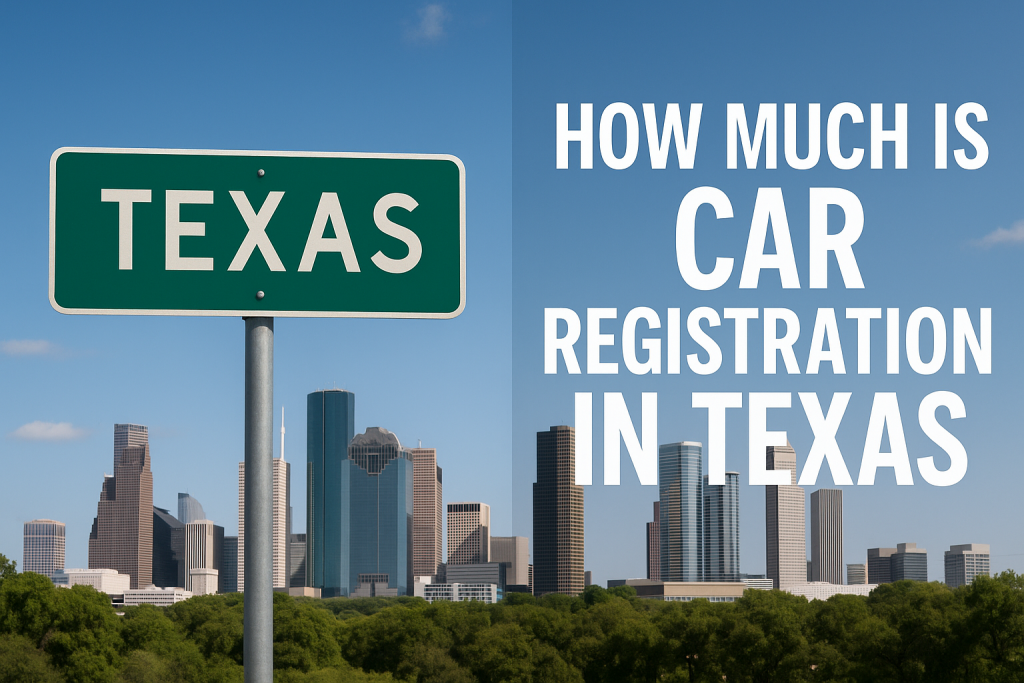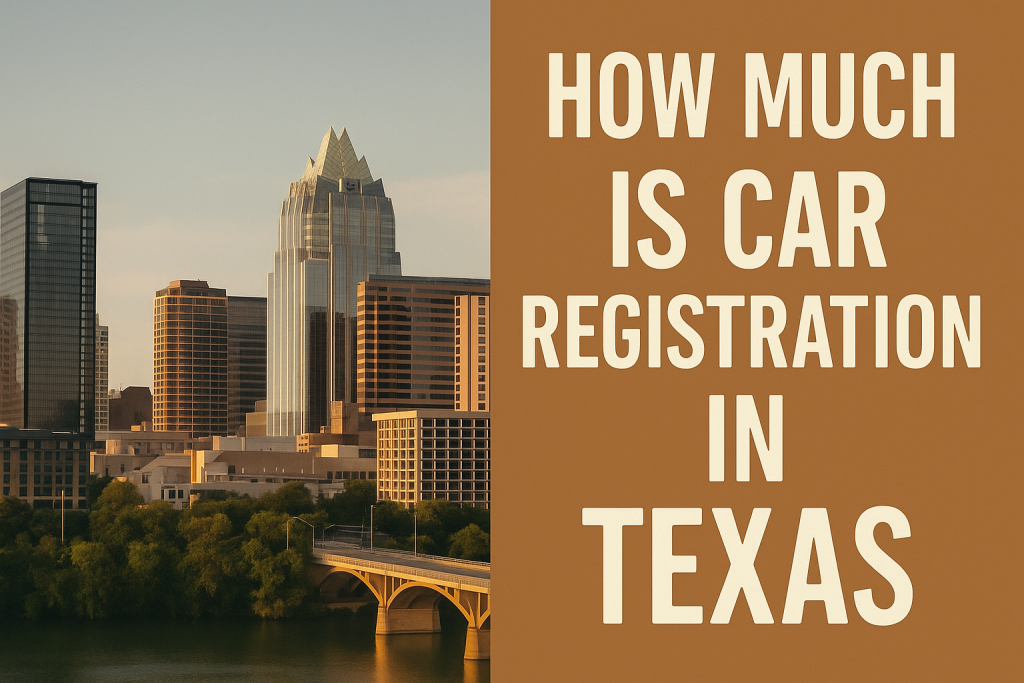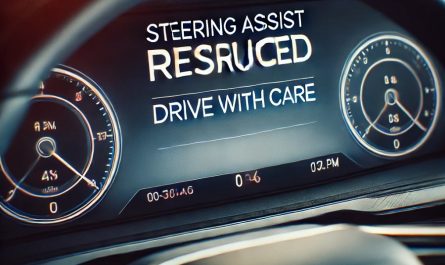Introduction
Moving to Texas or buying a new car? One of the first things you’ll need to do is register your vehicle with the Texas Department of Motor Vehicles (TxDMV). But how much does car registration in Texas cost? If you’re feeling overwhelmed by fees, paperwork, or the process, don’t worry! This guide breaks it all down in simple terms, so you can hit the road legally and confidently. Whether you’re a new resident, a first-time car owner, or just renewing your registration, we’ve got you covered with everything you need to know for 2025.

In this article, we’ll explain the costs, steps, and requirements for registering a car in Texas. We’ll also share tips to save time and money, answer common questions, and provide a clear breakdown of fees for different vehicles. Let’s dive in!
Why Do You Need to Register Your Car in Texas?
Registering your car in Texas is more than just a legal requirement it’s how the state ensures vehicles are safe, insured, and properly tracked. Your registration sticker shows law enforcement that your car meets Texas standards, and it helps fund road maintenance and other state programs. Without it, you risk fines or even having your car impounded. Plus, registration gives you peace of mind, knowing you’re driving legally.
If you’re new to Texas, you have 30 days to register your vehicle after moving. For current residents, renewals are typically due annually. The good news? The process is straightforward once you know the costs and steps.
How Much Does Car Registration Cost in Texas?
The cost of registering a car in Texas depends on factors like your vehicle type, weight, and the county you live in. For most people, the total cost ranges from $70 to $103.25, but it can be higher for heavier vehicles or electric cars. Let’s break it down.
Base Registration Fees by Vehicle Type
The TxDMV sets a standard base fee for different vehicles. Here’s a quick look at the main categories for 2025:
- Passenger Cars (6,000 lbs or less): $50.75
- Pickup Trucks (6,001–10,000 lbs): $54
- Motorcycles and Mopeds: $30
- Trailers/Travel Trailers: Starts at $45
- Fully Electric Vehicles (10,000 lbs or less): $200 annual fee (or $400 for a two-year registration) on top of standard fees
- Boats: Handled by the Texas Parks and Wildlife Department, starting at $32 and up to $150 based on size
Additional Fees You Might Pay
On top of the base fee, you’ll likely encounter other charges. These vary by county and situation but are crucial to budget for:
- TexasSure Insurance Verification Fee: $1 (supports the state’s insurance verification program)
- Processing and Handling Fee: $4.75 (covers administrative costs)
- County Fees: $10–$21.50 (for local road and bridge maintenance; higher in counties like Bexar and Cameron)
- Emissions Testing Fee: $2.50–$33.75 (required in 17 urban counties, like Harris, Dallas, or Travis)
- Inspection Program Replacement Fee: $7.50 (replaces the safety inspection fee for non-commercial vehicles in 2025)
- Sales Tax for New Residents: $90 or the difference between your previous state’s sales tax and Texas’ 6.25% rate
- Late Registration Fee: Up to $200 if you register after the five-day grace period post-expiration
Total Cost Estimate
For a typical passenger car in a county requiring emissions testing, expect to pay $80–$90. In counties without emissions testing, costs are closer to $70–$80. Electric vehicle owners should budget an extra $200 annually ($400 for two-year registrations). Always check with your local county tax office for exact fees, as they can vary slightly.
Here’s a comparison table to make it clear:
| Vehicle Type | Base Fee | Additional Fees | Total Estimated Cost |
|---|---|---|---|
| Passenger Car | $50.75 | $13.25–$33.75 | $70–$90 |
| Pickup Truck (6,001–10,000 lbs) | $54 | $13.25–$33.75 | $73–$93 |
| Motorcycle/Moped | $30 | $13.25–$33.75 | $50–$70 |
| Electric Vehicle | $50.75 + $200 | $13.25–$33.75 | $270–$290 |
| Trailer (varies by weight) | $45+ | $13.25–$21.50 | $60–$80+ |
Note: Costs are estimates and may vary by county.
Why Do Costs Vary Across Texas?
You might wonder why your friend in Austin pays more than your cousin in a rural county. The answer lies in local fees and emissions testing. Urban counties like Harris, Dallas, and Travis require emissions tests, which add $25.50–$33.75 to your bill. Some counties, like Bexar and Cameron, also charge higher local fees (up to $21.50) to fund transportation projects. Rural counties often have lower fees, sometimes as little as $10.
For example, registering a passenger car in Harris County might cost $85–$90 due to emissions testing and a $11.50 county fee. In a rural county like Lamar, you might pay closer to $70 since emissions tests aren’t required.
Do You Need a Vehicle Inspection in 2025?
Big news for Texas drivers: starting January 1, 2025, non-commercial vehicles no longer need annual safety inspections, thanks to House Bill 3297. However, if you live in one of the 17 emissions-testing counties, you’ll still need an emissions test before registering. These counties include:
- Brazoria
- Collin
- Dallas
- Denton
- El Paso
- Ellis
- Fort Bend
- Galveston
- Harris
- Johnson
- Kaufman
- Montgomery
- Parker
- Rockwall
- Tarrant
- Travis
- Williamson
Bexar County joins this list in November 2026. Emissions tests cost $25.50 at the inspection station, plus a $2.50 state fee at registration. Even if you don’t need an emissions test, all vehicles pay a $7.50 Inspection Program Replacement Fee to support highway funding.
If you’re registering a new car (current or previous model year), you may qualify for a two-year registration, which doubles the inspection replacement fee to $16.75.
How to Register Your Car in Texas: Step-by-Step
Registering a car in Texas is easier than it sounds. Whether you’re a new resident, bought a car from a dealership, or purchased from a private seller, here’s how to do it:
Step 1: Get Your Vehicle Inspected (If Needed)
If you live in an emissions-testing county, take your car to a Texas Department of Public Safety (DPS)-certified inspection station. Many mechanics, oil change shops, and service stations offer this service. The station will electronically submit your results to the TxDMV and give you a Vehicle Inspection Report (VIR).
Step 2: Gather Required Documents
You’ll need the following to register your car:
- Proof of Insurance: Texas requires minimum liability coverage of $30,000 per person, $60,000 per accident, and $25,000 for property damage.
- Proof of Ownership: This could be the vehicle title, out-of-state registration, or a bill of sale.
- Application for Texas Title and/or Registration (Form 130-U): Download it from the TxDMV website or pick it up at your county tax office.
- Your ID: A Texas driver’s license or state-issued ID works.
- Odometer Disclosure Statement: Required for vehicles 2011 or newer.
- Vehicle Identification Number (VIN): Have this ready for verification.
Step 3: Visit Your County Tax Office
Head to your local county tax assessor-collector’s office to submit your documents and pay the fees. If you bought your car from a Texas dealership, they often handle this step for you. You’ll receive your license plates (if needed) and a registration sticker to place on your windshield.
Step 4: Pay the Fees
Pay by cash, check, money order, or credit/debit card (some counties charge a 3% card fee). Online registration offers a $1 discount, so consider that if you’re renewing.
Step 5: Display Your Registration Sticker
Place the sticker on your windshield as proof of registration. You’ll get a new one each year when you renew.
How to Renew Your Car Registration
Renewing your registration is simpler than the initial process. You can do it up to 90 days before or 12 months after the expiration date (without a citation). Here are your options:
- Online: Visit the TxDMV website or use the Texas by Texas (TxT) mobile app. You’ll need your license plate number, the last four digits of your VIN, and proof of insurance. Online renewals save $1.
- By Mail: Send your renewal notice, proof of insurance, and payment to your county tax office. Include a copy of your emissions report if required.
- In Person: Visit your county tax office with the same documents. Some counties offer self-service kiosks for faster service.
- At Grocery Stores: Certain stores, like H-E-B, have TxDMV kiosks for quick renewals.
Your new sticker arrives by mail within 10 business days. If you renew online, you’ll get a receipt to show proof of registration until the sticker arrives.
Special Cases: Registering Out-of-State or Leased Vehicles
Out-of-State Vehicles
If you’re moving to Texas, you have 30 days to register your car. You’ll need:
- A passing emissions test (if in an emissions county)
- Proof of insurance meeting Texas requirements
- The vehicle’s out-of-state title or registration
- Form 130-U
- A $90 new resident tax (or the difference between your previous state’s sales tax and Texas’ 6.25% rate)
You don’t need to retitle your vehicle in Texas, but you must register it. Active-duty military and non-resident students may be exempt check with your county tax office.
Leased Vehicles
Leasing companies often handle registration, but you may need to provide proof of insurance and sign paperwork. Check with your leasing company for details.
Electric Vehicles
Electric vehicle owners pay an extra $200 annually ($400 for two-year registrations) to offset lost gas tax revenue. This applies to fully electric vehicles, not hybrids or motorcycles.

Tips to Save Time and Money
- Renew Online: Save $1 and avoid lines by renewing through the TxDMV website or TxT app.
- Check County Fees: Call your county tax office to confirm local fees before budgeting.
- Stay on Time: Renew before your registration expires to avoid late fees (up to $200).
- Use Dealership Services: If buying from a Texas dealership, let them handle registration to save a trip to the tax office.
- Sign Up for eReminders: The TxDMV can email you when it’s time to renew, so you don’t forget.
Common Mistakes to Avoid
- Skipping Emissions Testing: If you’re in an emissions county, don’t skip this step, or you won’t be able to register.
- Ignoring Deadlines: New residents have 30 days, and renewals have a five-day grace period. Late registration can lead to fines.
- Not Updating Insurance: Ensure your policy meets Texas’ minimum requirements before registering.
- Forgetting Documents: Double-check that you have all required paperwork to avoid multiple trips to the tax office.
FAQs About Car Registration in Texas
Q: How much is car registration in Texas for a new car?
A: For a new passenger car, expect to pay $70–$90, including the $50.75 base fee, $7.50 inspection replacement fee, $4.75 processing fee, and county fees ($10–$21.50). Emissions testing ($25.50–$33.75) may apply in certain counties. New electric vehicles pay an additional $400 for a two-year registration.
Q: Can I register my car online?
A: Yes, renewals can be done online through the TxDMV website or TxT app, saving you $1. Initial registrations for out-of-state or new vehicles must be done in person.
Q: What happens if I don’t register my car on time?
A: You have a five-day grace period after expiration. After that, you risk a citation and a late fee of up to $200.
Q: Do I need a Texas driver’s license to register my car?
A: No, but you need a Texas ID or driver’s license to complete the registration process.
Q: How do I know if my county requires emissions testing?
A: Check the list of 17 emissions counties (e.g., Harris, Dallas, Travis). If you’re unsure, contact your county tax office or visit the TxDMV website.
Q: Are there discounts for registering multiple vehicles?
A: No, each vehicle is registered separately with its own fees. However, online renewals offer a $1 discount per vehicle.
Conclusion
Registering your car in Texas doesn’t have to be a headache. For most drivers, the cost is $70–$90, with electric vehicle owners paying more due to the $200 annual fee. By understanding the fees, gathering the right documents, and knowing your county’s requirements, you can breeze through the process. Whether you’re renewing online, visiting a tax office, or letting a dealership handle it, staying on top of registration keeps you legal and stress-free.
Ready to get started? Visit your local county tax office or the TxDMV website to check specific fees and requirements. Drive safe, and welcome to the Lone Star State!


